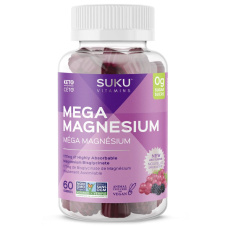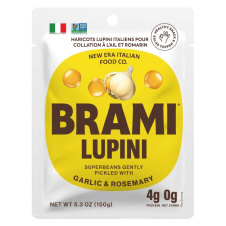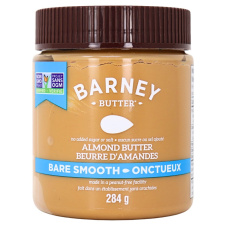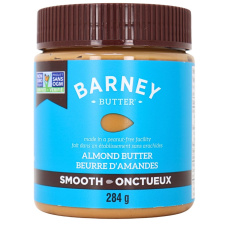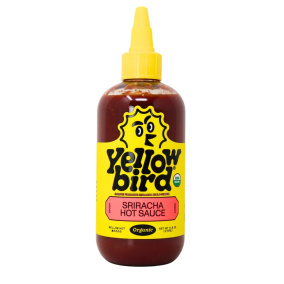
How Does Diet Affect Your Skin
Do you want to get clear skin naturally? Then, keep reading! We’ve uncovered all the secrets to get you that print-ad, airbrushed-looking skin naturally. Now, you may be thinking that you don’t want another skin cream recommendation, and guess what? We’re not going to give you one. Instead, we’re speaking the truth. And, the truth is that clear skin starts from the inside. Here’s what we mean by that...
What are Skin breakouts?
First, it’s important to understand what are these blemishes that are showing up on your skin. Skin blemishes or acne can present itself in a variety of ways: whiteheads, blackheads, pimples, and more.It can appear in a variety of sizes, and anywhere in the body. Common places for acne include: the forehead, chin, chest and the upper back. Acne is most common amongst teenagers but it can appear in adulthood.
What Causes Acne?
Acne can occur for many reasons, one of them being inflammation. Inflammation can appear anywhere in the body and spread everywhere causing acne. Inflammation occurs when your immune system attacks a foregin body, like a virus or food, or itself. More often than not, inflammation is related to your diet. In general, there may be certain foods that your body is not able to tolerate, resulting in inflammation. But, when it comes to diet there are a wide range of possible causes of inflammation. Let’s break it down even more:
Food Allergies:
It is possible that you could have an unknown food allergy causing your acne. Symptoms of a food allergy include but are not limited to swelling, rashes, and difficulties breathing. If you are allergic to a food you will have to completely remove it from your diet. An allergy test is required to determine what your body is allergic to.
Food Intolerances:
Your acne could also be a result of a food intolerance. Unlike a food allergy, an intolerance does not cause an immune response, therefore it is not life threatening. Nonetheless, intolerances can vary in severity. Many suffer very severe intolerances making it difficult to maintain these foods in their diet.Common intolerances include gluten, wheat, dairy or soy. To know if you have a food intolerance, you will likely have to undergo an elimination diet or intolerance testing, both which should be monitored by health professionals. Common symptoms of intolerances are bloating, diarrhea, and abdominal pain.
Food Sensitivities:
There is also the possibility that your inflammation is neither caused by an allergy nor an intolerance but rather a food sensitivity. A food sensitivity is a non-life threatening reaction that is not related to intolerances or allergies, which occurs post-consumption of specific foods. Some symptoms experienced from a food sensitivity include mental fog, fatigue, and joint pain. Interestingly, food sensitivities can fade with changes in our evolving gut bacteria. So, you might have a food sensitivity now, but you may be able to enjoy those foods again later in life.
Inflammatory Bowel Disease:
If you’re experiencing constant inflammation you may have an inflammatory bowel disorder. Inflammatory Bowel Disease (IBD) refers to a group of disorders characterized by inflammation in the intestines. IBD can present itself anywhere along the digestive tract. Some terms that are used to describe where the inflammation presents itself are Crohn's Disease (presents anywhere along the digestive tract but typically the small intestine), and Ulcerative Colitis (presents in the colon/large intestine). Symptoms of IBD include flares of abdominal pain, fever, weight loss and frequent urgency to have a bowel movement. Although the cause of IBD is unknown, it is important to seek professional help if you suspect that you have IBD.
Celiac Disease:
Many know of Celiac Disease as a gluten allergy, however Celiac Disease does not fit the mold of an allergy; This is because, unlike an allergy, Celiac Disease occurs from repeated consumption of gluten. A one-time consumption of gluten will not cause an autoimmune reaction (inflammation). However, continuous consumption of gluten can cause the small intestine to become injured, leading to symptoms such as weight loss, diarrhea and malnutrition. If you have Celiac Disease you will have to avoid all grains with gluten: wheat, rye, triticale, barley, semolina, bulgur and farina. If you suspect that you have Celiac Disease you will have to seek help from a medical professional.
Other causes of acne:
Other possible causes of acne include clogged hair follicles, excess production of oil by the skin or bacteria. Depending on the person, it may be a combination of all of the above. Regardless of the cause, improvements in your diet can help you get rid of acne and maintain healthy skin naturally.
What foods cause Acne?
With so many different and complex foods in our diet it can be difficult to pinpoint which food could be causing the inflammation, which in turn could be causing your acne. Inflammation caused by food may present itself up to 48hrs after consumption, making it even more difficult to find the culprit. However, there are many common foods that are considered to be pro-inflammatory that could be responsible for your acne. Eliminating* one of these foods from your diet for a period of time may be necessary to identify the suspect. Proinflammatory foods that you may want to avoid or moderate include:
- Trans-fats: Processed foods, margarine, deep fried foods and packaged foods designed to have a long shelf life.
- Refined Seed Vegetable Oils+: Soybean oil, corn oil, safflower oil, wheat germ oil, sunflower oil, grapeseed and cotton seed oils.
- Processed foods high in Omega-6s
- Saturated Fat
- Dairy products+: Full-fat dairy, sweetened or flavoured dairy products, non-fermented dairy products, butter, and cream.
- Red Meat & Processed Meat: Ham, salami, hot dogs, and sausages.
- Charred Foods: Cooked food that is partially burned presenting black patches on the surface.
- Refined Carbohydrates & High Glycemic Foods: White flour, white bread, refined sugars.
*Disclaimer - elimination of any food from your diet should be done under medical supervision. Speak to your healthcare provider prior to making any modifications to your diet.
+You still need to consume some of these foods in your diet. However, the typical Western diet consumes too many, so the amount and frequency of consumption should be limited.
What Should I Eat for Clear Skin in a Day?
Like there are proinflammatory foods, there are also many anti-inflammatory foods. Increasing the amount of these foods or adding these foods into your diet, can help you achieve the glowing, acne-free skin you’re after.
- Poly- and Monounsaturated Fatty Acids: such as those found in Olive Oil and Canola Oil.
- Omega-3s: Found in fatty, cold water fish like salmon.
- Fiber: Found in fruits, vegetables, beans , legumes, and whole grains.
- Low Glycemic Foods: unprocessed whole grains, starchy vegetables, fruit, protein, fats, and foods high in fibre.
How Do You Get a Clear Face Fast?
Although it won’t be a night to day cure, there are some everyday things that you can do to help you get clear skin faster. Here are some tips to help clear your skin and stay acne-free:
Clear Skin Tips:
- Eat balanced meals: Include a protein, a healthy fat, whole grains, and fruits or veggies with plenty of fibre.
- Ensure that you get enough magnesium: A deficiency in magnesium can cause inflammation. Foods high in magnesium include cashews, almonds and dark leafy greens.
- Exercise: Exercise can reduce inflammation. Aim for a minimum of 30 minutes of moderate to vigorous activity per day.
- Sleep: Lack of quality sleep can cause inflammation. Aim for a minimum of 7 hours per night.
- Relax: Excess amounts of stress can cause inflammation. Look for healthy stress coping mechanisms to relieve stress.
- Manage Weight: Obesity places you at risk of increased inflammation. Excess fat cells produce compounds that can cause internal stress and increase inflammation. Therefore, when you lose excess weight you may notice that your skin clears up.
Putting it all together: How Do You Get a Clear Face Fast?
Since there are many possible causes of acne, if you want to clear your skin fast then you’ll have to identify what is causing your acne. Our advice is to first focus on building healthy habits like eating balanced meals, exercising and getting enough sleep. Secondly, you could also keep a note of when your acne flares up and if there are any accompanying symptoms. Once you have this information a health professional can make further recommendations to clear your skin fast. The most important thing to remember is that our skin is an organ, and like our other organs it needs proper nutrition and care. Practice healthy habits and you’ll quickly notice the positive result it will have on your skin.



